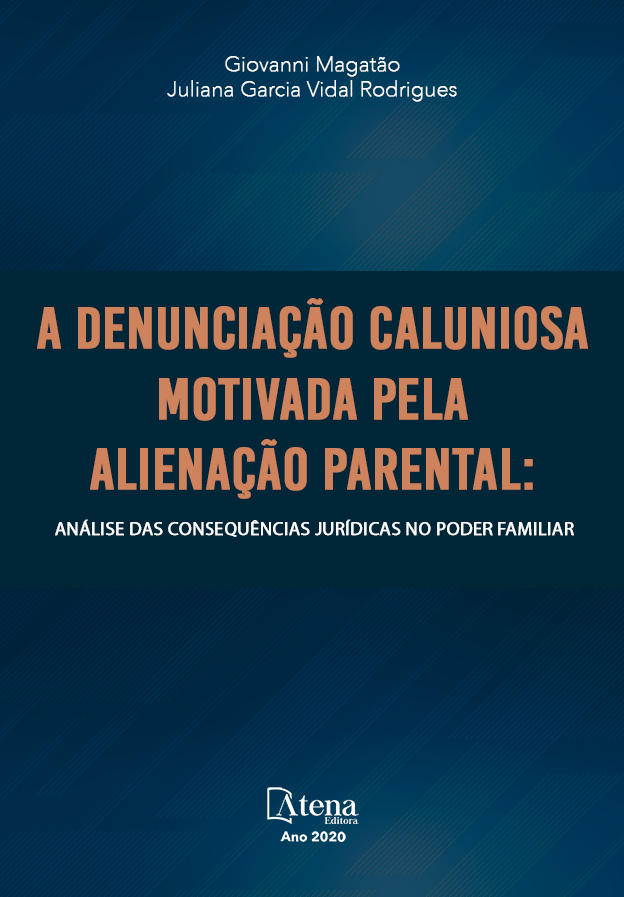
A denunciação caluniosa motivada pela alienação parental: análise das consequências jurídicas no poder familiar
Atualmente denominado de Alienação Parental, este instituto se caracteriza por ser o processo, como também o resultado, da manipulação psicológica do filho do casal por um genitor (alienador) para que o mesmo se volte contra o outro genitor (alienado), seja por medo, aversão, hostilidade exacerbada sem explicação ou desrespeito. É comum ocorrer nos processos judiciais a presença da alienação parental quando há embate quanto à guarda do filho dos genitores em caso de conturbado divórcio. A alienação parental pode gerar graves efeitos ao genitor alienado, o qual pode ser até acusado falsamente pelo ex-cônjuge de praticar abuso sexual contra seu filho, o que o faz justamente com o fim de tentar afastar a criança do genitor vítima da alienação, denominado tal delito como denunciação caluniosa pelo Código Penal Brasileiro. Recentemente, em 24 de setembro de 2018, houve a publicação da Lei nº 13.715, a qual alterou textos do Código Penal, Código Civil e Estatuto da Criança e do Adolescente, com a finalidade de dispor sobre hipóteses de perda do poder familiar pelo autor de determinados crimes cometidos contra o filho (a), outro descendente e, em face de outrem igualmente titular do mesmo poder familiar, inclusive o delito de denunciação caluniosa, o qual pode ser motivado pela alienação parental. O principal objetivo deste livro é o estudo e análise da destituição do poder familiar por condenação de denunciação caluniosa cometido contra o outro detentor do mesmo poder familiar, e, dos efeitos que gerará para os envolvidos, em especial para o menor. Para esta pesquisa foram utilizados métodos de análise da legislação pátria e revisão bibliográfica. Ao se discutir acerca da alienação parental, existem vários fatores em que se deve levar em consideração, isso porque o genitor alienador além de causar efeitos ao genitor alienado também acaba, indiretamente, atingindo seu filho, o qual pode desenvolver graves síndromes em razão dos atos alienatórios. Contudo, a doutrina explicita que o alienador em um misto de, geralmente, ódio e tristeza, acaba por realizar atos que não os realizaria se não estivesse desestabilizado emocionalmente em razão da separação do casal ou do divórcio. Por fim, concluiu-se que, apesar de nefastos os efeitos da alienação parental, a destituição do poder familiar de um dos genitores acaba por satisfazer a pretensão do alienado de ver o alienador sendo punido, porém traz efeitos negativos ao filho, visto que há violação de vários princípios constitucionais e infraconstitucionais que norteiam os direitos da criança e do adolescente, como da convivência familiar e da proteção integral.
A denunciação caluniosa motivada pela alienação parental: análise das consequências jurídicas no poder familiar
-
DOI: 10.22533/at.ed.884201111
-
Palavras-chave: Alienação Parental. Denunciação Caluniosa. Poder Familiar. Guarda. Lei nº 13.715/2018.
-
Keywords: Keywords: Parental Alienation. Slanderous Denunciation. Family Power. Guard. Law nº 13.715/2018.
-
Abstract:
Currently called Parental Alienation, this institute is characterized as being the process, as well as the result, of the psychological manipulation of the couple's child by a parent (alienator) so that the child turns against the other parent (alienated), in reason of fear, aversion, exacerbated hostility without explanation or disrespect. It is common to have in the legal proceedings the presence of parental alienation when there is clash over the custody of the parents' child in the event of a disturbed divorce. Parental alienation can have serious effects on the alienated parent, who may even be falsely accused by the ex-spouse of sexual abuse of his or her child, which does so in order to try to remove the child from the alienated parent, such offense referred to as a slanderous denunciation by the Brazilian Penal Code. Recently, on September 24, 2018, Law 13.715 was published, which amended texts of the Criminal Code, Civil Code and Statute of the Child and Adolescent, in order to dispose of the hypotheses of loss of family power by the author of certain crimes committed against the son, daughter, other descendant and against another equally holder of the same family power, including the crime of slanderous denunciation, which may be motivated by parental alienation. The main objective of this monograph is the study and analysis of the destitution of family power by condemnation of slanderous denunciation committed against the other holder of the same family power, as well as the effects it will generate for those involved, especially for the minor. Methods of bibliographic review and analysis of the country's legislation were used for this study. When discussing parental alienation, there are several factors that must be taken into account, because the alienating parent, in addition to causing effects to the alienated parent, also indirectly ends up affecting his child, who can develop serious syndromes due to the alienating acts. However, the doctrine explicitly states that the alienator, generally in a mixture of hatred and sadness, ends up performing acts that he would not perform if he were not emotionally destabilized by the separation of the couple or divorce. Finally, it was concluded that, despite the harmful effects of parental alienation, the removal of the family power of one of the parents ends up satisfying the alienated person's intention to see the alienator being punished, but it has negative effects on the child, since there is violation of several constitutional and infraconstitutional principles that guide the rights of the child and the adolescent, as well as of family coexistence and integral protection.
-
Número de páginas: 55
- Juliana Garcia Vidal Rodrigues
- Giovanni Magatão


